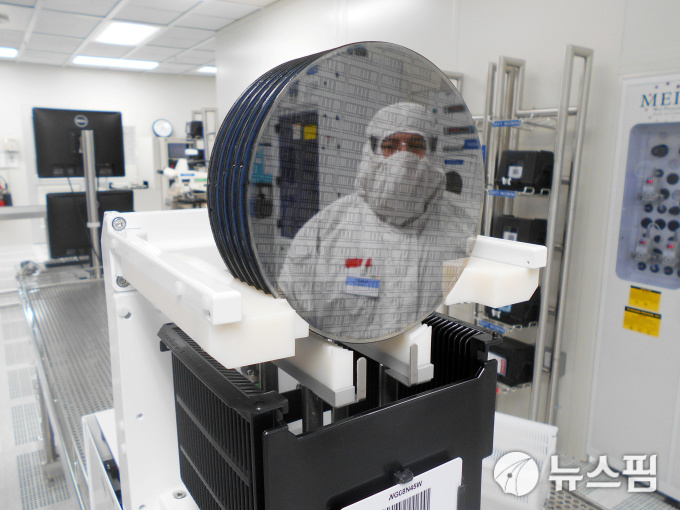Enhancement of next-generation power semiconductor technology capabilities based on new materials
Procurement of vehicle semiconductors, rapid screening of isolation exemption at the time of entry
[세종=뉴스핌] Reporter Eun-Seok Lim = 204.7 billion won will be invested in related technology development (R&D) such as next-generation intelligent semiconductor technology development business and autonomous driving technology development innovation business by 2022. Through this, the self-sufficiency of semiconductors and parts for vehicles is promoted.
In addition, an infrastructure for functional safety evaluation and reliability certification will be established to alleviate the barriers to entry of automotive semiconductors by fabless and foundries and support the application of finished vehicles.
On the 10th, at the 6th Innovation Growth BIG3 Promotion Meeting held at the Seoul Government Complex on the 10th, the government jointly announced a strategy to respond to short-term supply and demand of semiconductors for vehicles and strengthen industrial capabilities. The agenda included ▲ response to short-term supply and demand of semiconductors for vehicles ▲ strengthening mid- to long-term industrial capabilities ▲ specific implementation plans for solidarity and cooperation between automobile-semiconductor companies.
 |
| NXP Semiconductor’s Arizona Production Facility [사진=로이터 뉴스핌] |
First of all, it will provide 204.7 billion won for future car core semiconductor R&D from 2020 to 2022. It is to support the self-sufficiency of semiconductors and parts for vehicles through related R&D, such as the next-generation intelligent semiconductor technology development business and autonomous driving technology development innovation business. This year, the support area will be expanded to ▲ vehicle APs and edge computing chips ▲ level 4 autonomous vehicle components ▲ safe driving platforms.
For the rapid commercialization of automotive semiconductors, existing non-vehicle semiconductors, such as home appliances, industries, and mobiles, will be converted and remodeled into vehicles. Support for existing R&D tasks for automotive semiconductors will continue to expand and open learning data necessary for the development of autonomous driving semiconductors.
In response to the increased power consumption of future vehicles such as electric vehicles and autonomous vehicles, the next-generation power semiconductor technology capability, which is expected to increase in demand, will be reinforced. In particular, R&D is being promoted to preoccupy the early market of semiconductors based on new materials such as silicon carbide (SiC) and gallium nitride (GaN), which are superior in power efficiency and durability compared to silicon (Si).
In addition, a functional safety evaluation and reliability certification infrastructure will be established to alleviate the barriers to entry into vehicle semiconductors by fabless and foundries and support the application of finished vehicles. The facility and test evaluation equipment for functional safety test evaluation and reliability certification of automotive semiconductors have been built for 5 years, and the infrastructure will be operated as an open lab for joint use and research by fabless.
We will also strengthen support for prototyping costs so that fablesses can use semiconductor foundries for domestic and foreign vehicles without burden. A full-cycle support system for all stages of mass production that leads to vehicle semiconductor R&D, prototype production, functional safety and reliability evaluation. In order to respond to the growing demand for next-generation semiconductors such as automobiles and home appliances in the future, domestic foundry investment support will also be strengthened.
In addition, we are in close consultation with major countries, overseas semiconductor companies, and associations that have used public-private cooperation channels to ensure smooth procurement of automotive semiconductors.
From the 17th of last month to prevent disruption in automobile production, support for rapid customs clearance for automotive semiconductor parts, rapid screening of quarantine exemption upon entry and exit related to automotive semiconductor procurement, and prevention of Corona 19 for outbound entrepreneurs for essential purposes such as purchasing and procuring semiconductors for vehicles. Promote vaccination.
It also supports early commercialization of automotive semiconductors through emergency support for performance evaluation of automotive semiconductor parts and modules developed by domestic companies. It discovers materials, parts, and equipment cooperation models linked by automobile companies, foundries, and fabless companies, and supports them in packages.
In addition, a consultation channel for close solidarity and cooperation between the domestic automobile-semiconductor industry will be established, and a strategy for developing semiconductors for vehicles will be prepared by conducting a current status survey and establishing a technology roadmap.
A government official said, “We plan to carry out follow-up measures without a hitch so that solidarity and cooperation among companies for the self-sufficiency of automobile semiconductors will be actively carried out.”
